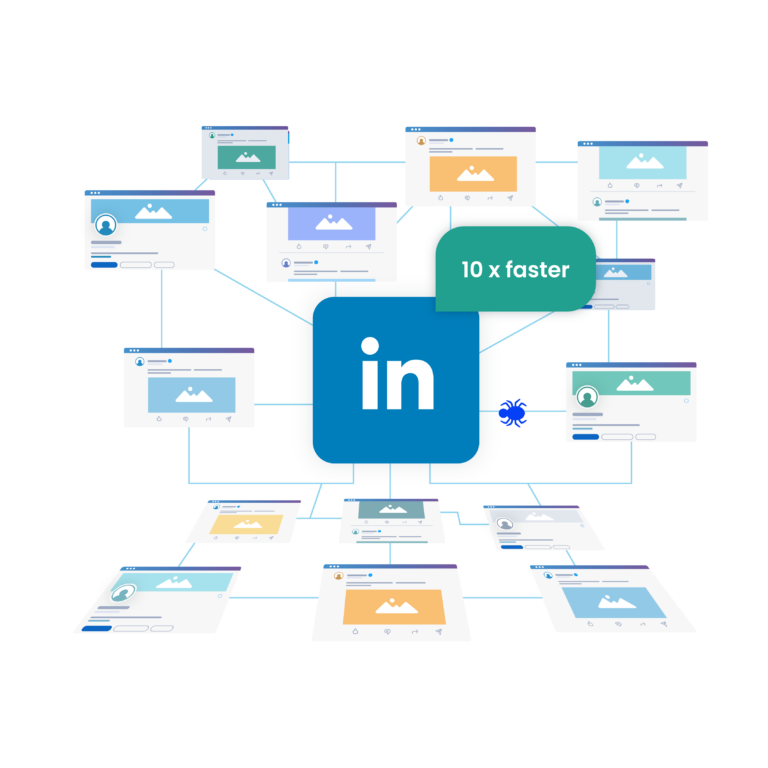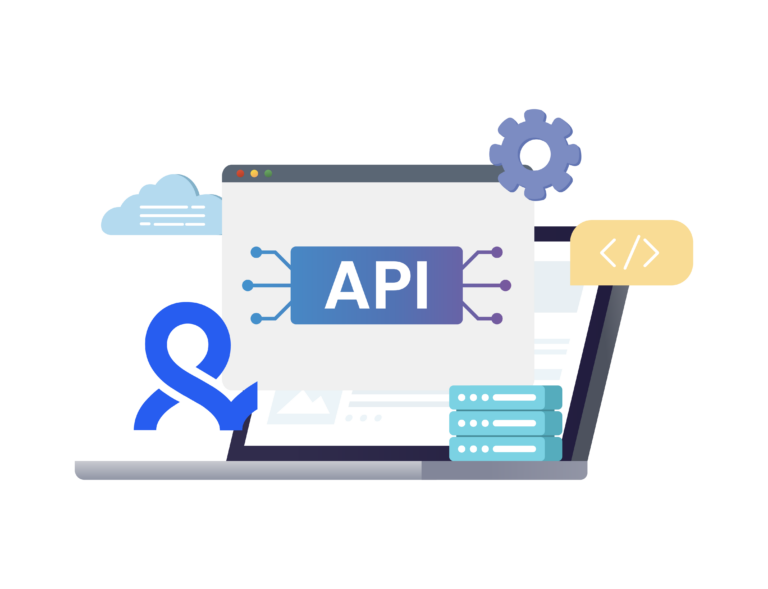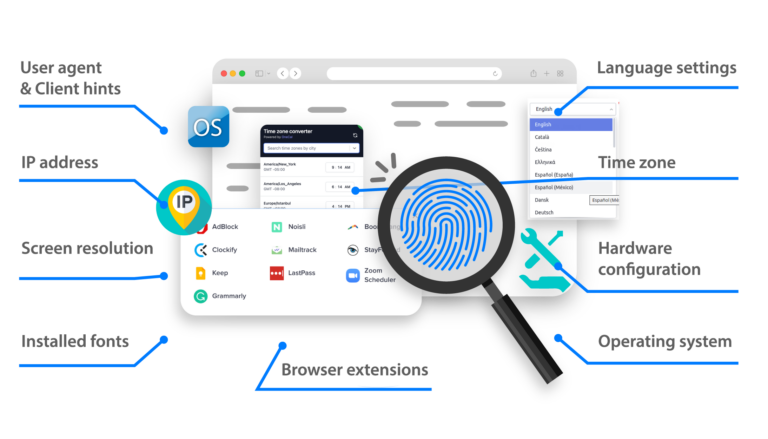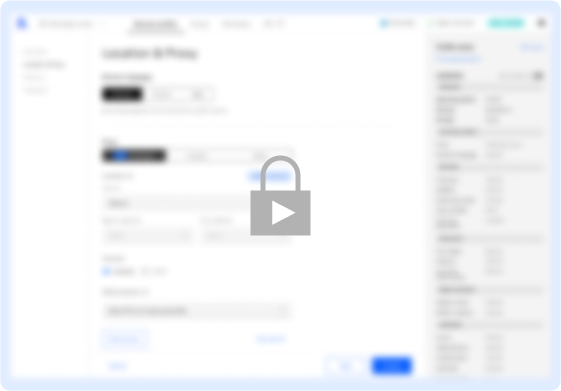LinkedIn scraping
Extract and analyze large amounts of data quickly without worrying about hitting rate limits or account blocks.


Collect leads in bulk
Scrape as much LinkedIn data as you need (posts, groups, events, Sales Navigator) to maximize your lead generation efficiency.

Speed up scraping LinkedIn data
Automate manual processes and reduce equipment setup to collect data from one computer appearing like multiple users from different locations.

Beat the LinkedIn API rate limits
Scrape data unlimitedly without LinkedIn Developer access. Your automations remain undetectable with unique digital identities and trustworthy IP addresses.

Minimize business risks
Overcome LinkedIn anti-scraping measures while securely managing all your profiles in one browser without any risks of data loss and account bans.
Looking for cloud phones?
-
3-day access to Multilogin
-
5 cloud or local profiles
-
200 MB proxy traffic included
-
3-day access to Multilogin
-
5 cloud or local profiles
-
200 MB proxy traffic included
What is antidetect browser?
It is a special type of browser that evades detection and avoids account bans by websites when performing automated tasks like scraping.
An antidetect browser masks or alters the digital fingerprints, such as user agent, IP address, browser attributes, and other characteristics of our accounts that websites use to detect and track users. This way, the browsing activity looks like it comes from different, real users instead of one automated program.

Why use an antidetect browser for scraping LinkedIn data
Multilogin equips you with everything you need to build a high-performing LinkedIn scraper: antidetect browsers that protect your accounts from bans, high-quality residential proxies that dodge anti-bot systems, and browser automation support for popular drivers like Puppeteer, Playwright, and Selenium to automate your scraping tasks.

Multilogin features
Bypass bot protection
Our fingerprint masking technology is capable of modifying numerous browser fingerprints to avoid detection.

Integration with Selenium, Playwright, and Puppeteer
Automate data extraction with popular browser automation drivers all while keeping them invisible to anti-automation bots.
Residential rotating proxies
Gain access to premium residential proxy nodes in 1400+ cities across 150+ countries with your Multilogin subscription.
Fingerprint adjustment to proxies
All browser fingerprints are automatically adjusted to match the proxy’s location, enhancing anonymity.
Supports for all proxy types
Whether you use our proxies or bring your own, Multilogin supports all proxy types.
Data sync over VPS
Use our cloud profiles to synchronize browser data across multiple VPS instances effortlessly.
Fully featured browsers
Unlike headless browsers that websites can easily detect, our browsers mimic real user activity, preventing restrictions by websites.
Easy dockerization
Dockerize your LinkedIn scraping instances with ease using our quick dockerization guide.
How to start scraping LinkedIn with Multilogin antidetect
Enjoy the freedom of scraping vast amounts of LinkedIn data while keeping your accounts safe from bans or restrictions.

Sign up
Register using a verified email address.

Choose your plan
Select from various subscription plans tailored to your business needs.

Download Multilogin agent
Available for Windows, Mac, and Linux. It automatically installs two antidetect browsers on your machine, optimized for multi-accounting and data scraping.

Access the Multilogin dashboard
Start creating and managing antidetect browser profiles.

Create a script for LinkedIn scraping
Write a script with your developers or get in touch with us for personalized support.
What is LinkedIn scraping?
LinkedIn scraping involves extracting data from LinkedIn profiles, job postings, company pages, and other elements of the platform. You can use this data for a variety of purposes, including building a database of potential clients, analyzing industry trends, or even aggregating job listings for job boards.
Why Scrape LinkedIn Data?
Lead Generation
One of the primary reasons for LinkedIn scraping is lead generation. Businesses can compile lists of potential clients or partners by extracting details from LinkedIn profiles, such as names, job titles, company names, and contact information.
Market Research
By scraping data from LinkedIn, companies can gain insights into industry trends, competitor activities, and general market dynamics. In short, this can inform strategic decisions and marketing strategies.
Job Scraping
Recruiters and job boards often use LinkedIn scraping to gather job postings from various companies. This helps in building comprehensive job listings, which can attract job seekers to their platforms.
Is LinkedIn scraping legal?
The legality of web scraping LinkedIn depends on various factors, including how the scraping is conducted, what data is collected, and the jurisdiction. Unauthorized scraping can harm trust with users or clients.
Multilogin helps you to overcome LinkedIn API rate limits. It allows you to scrape data without LinkedIn developer access and stay undetectable with unique digital fingerprints.
Which tool is best for data scraping?
Several tools can help with LinkedIn data scraping, each with its unique features and capabilities. Here are some popular LinkedIn scraping tools that you can program within an antidetect browser like Multilogin:
Custom Python Scripts: Python offers powerful libraries such as BeautifulSoup, Scrapy, and Selenium useful for scraping LinkedIn data. By programming custom Python scripts, you can tailor your scraping process to fit specific needs, automate tasks, and handle large volumes of data efficiently.
Browser Extensions: Browser extensions like Web Scraper integrate with Multilogin, enabling you to configure scraping tasks directly from the browser interface. Moreover, this approach is user-friendly and effective for smaller scraping tasks.
APIs: LinkedIn’s official API allows scraping within the bounds of their terms of service. Although it has limitations, integrating LinkedIn’s API with Multilogin allows you to extract data programmatically while maintaining compliance with LinkedIn’s policies.
What are the best practices for LinkedIn web scraping?
Use an Antidetect Browser
LinkedIn has sophisticated mechanisms to detect and block scraping activities. Using an antidetect browser like Multilogin can help you avoid detection by mimicking human browsing behavior and managing multiple accounts without raising red flags.Rotate IP Addresse
IP rotation is essential for successful LinkedIn scraping. Implementing IP rotation within your scraping scripts helps in avoiding getting blocked by LinkedIn.Respect LinkedIn’s Terms of Service
While scraping can be beneficial, it’s important to respect LinkedIn’s terms of service. Avoid scraping excessive amounts of data in a short period and ensure you’re not infringing on user privacy.Use Proxies
Proxies add an extra layer of anonymity to your scraping activities. Residential proxies are particularly effective as they are less likely to be flagged by LinkedIn.Manage Cookie and Cache
Regularly managing your cookies and cache can prevent LinkedIn from identifying your scraping patterns. In addition, Multilogin provides features to handle cookies and cache effectively, ensuring smooth scraping operations.
How can an antidetect browser enhance LinkedIn scraping?
An antidetect browser can enhance LinkedIn scraping by mimicking human behavior and bypassing LinkedIn’s detection systems. LinkedIn uses sophisticated algorithms to detect and block automated scraping, so an antidetect browser helps evade these systems by simulating genuine user activity.
Multilogin is an antidetect browser solution that helps in managing multiple LinkedIn accounts without detection. Here’s how Multilogin can enhance your LinkedIn scraping efforts:
Profile management
Multilogin allows you to create and manage multiple browser profiles, each with its unique IP address, cookies, and browsing history. As a result, this helps in simulating different users and avoiding detection.Human-like behavior
One of the key features of Multilogin is its ability to mimic human browsing behavior. This includes randomizing mouse movements, clicks, and keystrokes, making your scraping activities appear as if they are being conducted by a human.Seamless integration
Multilogin integrates seamlessly with various LinkedIn scraping tools, enhancing their effectiveness and reducing the risk of account bans. Whether you’re using custom Python scripts, browser extensions, or APIs, Multilogin ensures your scraping activities remain under the radar.
How to use Multilogin for LinkedIn job scraping?
Let’s consider a scenario where a recruitment agency wants to scrape LinkedIn job postings to build a comprehensive job board. In this case, here’s how they can achieve this using Multilogin:
Step 1: Set Up Multilogin
The agency sets up multiple browser profiles in Multilogin, each with a unique IP address and browsing environment. As a result, their scraping activities are spreading across different accounts, minimizing the risk of detection.
Step 2: Choose a Scraping Method
They decide to use custom Python scripts for their scraping tasks due to the flexibility and control these scripts offer. They integrate these scripts within Multilogin to enhance their anonymity.
Step 3: Configure Scraping Tasks
Using Python libraries like BeautifulSoup and Selenium, they configure scraping tasks to extract job postings from LinkedIn. They set up parameters to scrape data such as job titles, company names, locations, and job descriptions.
Step 4: Monitor and Adjust
As the scraping tasks run, the agency monitors the results and adjusts the parameters as needed. Therefore, they use Multilogin’s features to manage cookies and cache, keeping the scraping activities undetected.
Step 5: Data Aggregation
The scraped data is then aggregated into a database, which is useful to build the job board. The agency updates the data regularly by scheduling periodic scraping tasks.
Watch the Multilogin demo for LinkedIn scraping
Get a 10-minute demo video on how Multilogin can help you easily extract large amounts of data from LinkedIn to understand market trends, competitors and consumer behavior.













